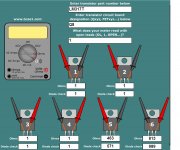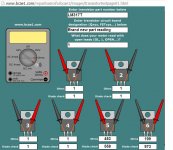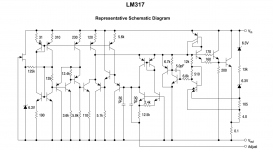That's why I went with the 110A. I'm hoping for a repair that lasts. The problem is, it's under the rear seat of a Chevy Silverado. There isn't any room for good airflow over it. I'm only driving a single 4 ohm sub with it. It was a refurb when I bought it years ago. Sometimes after a couple of hours of driving it would go into protection mode for a little bit. I've been trying to brainstorm up a fan but, there just isn't much room for it. I'm kinda getting off topic.
I am learning some things searching for these parts though. PB= lead free. Date codes printed on parts etc.
I am learning some things searching for these parts though. PB= lead free. Date codes printed on parts etc.
They are all rated for approximately the same current.
The difference in heat produced by the 6.5m ohm or the 8m ohm is insignificant compared to the heat produced by the audio section of the amp.
4 ohm mono is the toughest load that the amp can withstand.
Centrifugal blowers are thin and move a lot of air. They can also throw a stream of air farther than normal square fans. Any air moving over the amp will help significantly.
PBF is lead free. PB is the elemental symbol for lead.
The difference in heat produced by the 6.5m ohm or the 8m ohm is insignificant compared to the heat produced by the audio section of the amp.
4 ohm mono is the toughest load that the amp can withstand.
Centrifugal blowers are thin and move a lot of air. They can also throw a stream of air farther than normal square fans. Any air moving over the amp will help significantly.
PBF is lead free. PB is the elemental symbol for lead.
I wish it had an internal fan. Are you talking about something like this?
75mm 12V Brushless DC Blower Cooling Fan Exhaust Fan 2pin 75x30mm Computer | eBay
75mm 12V Brushless DC Blower Cooling Fan Exhaust Fan 2pin 75x30mm Computer | eBay
That's the type. It's hard to know what sort of output it will have. I've had 35cfm blowers (Delta brand) that moved significantly more air farther than ones rated at 45cfm (computer case coolers).
To clarify, the outside of the heatsink is what needs to have air moving over it.
To clarify, the outside of the heatsink is what needs to have air moving over it.
I picked up one of those weller ml200 butane torches new from ebay for $15. I hope it comes with some fuel already. Will any butane be fine or, should I stick with weller brand? I don't know that I've ever seen that in stores.
I've received my new parts. I decided for a good learning experiment I would measure and record the parameters of each new transistor.
I noticed a big difference in the drain to source resistance in test number 6 on Q8 for the new one and the removed original. Everything else was close. What to make of this? I'm thinking the original is good but, it does show about 600 ohms more in the test.
I noticed a big difference in the drain to source resistance in test number 6 on Q8 for the new one and the removed original. Everything else was close. What to make of this? I'm thinking the original is good but, it does show about 600 ohms more in the test.
Attachments
Q8 and Q9 are not transistors. They are voltage regulators and are actually integrated circuits (multiple internal components - see attached). They cannot be tested like simple transistors.
Ahh I see. I knew from ordering them that they were regulators but, I never gave any thought that it couldn't be measured in that way. I'm learning a lot with this repair. I suppose I should just change it while I have the little daughter board out of the amp. Do regulators fail often?
The regulators sometimes fail but it's rare because they have all sorts of internal protection (described in the datasheet, if you want to look it up).
The regulators sometimes fail but it's rare because they have all sorts of internal protection (described in the datasheet, if you want to look it up).
Thank you Perry. I might just leave the original in. The other side I changed everything. Q6, Q9, CR2, Q215, and Q219. Q115 and Q119 out of circuit measure very close to the new ones so I believe they are ok. I can see they have been replaced before. I bought this as a refurb so I'm sure that's when they did it. It's looking like the IRF 3205 and the U1620R should be all I need to do on this side.
On a side note, I got to use the WES51 for the first time. Wow, that thing heats up fast! All I've ever used was the El cheapo $15 40 watt irons like you get at Sears or Radio Shack. I really like this thing. I've got the long conical tip and the screwdriver tip. Any others I should add?
ETA and ETD tips but only buy from legitimate distributors. I've purchased 'weller' tips from ebay and they weren't the same, even though they were in weller packaging.
Well, I installed the amp in the truck and as I powered it on, I saw a little snap from one of the caps near the transformer. It doesn't look bad but, obviously a pop is not good. Didn't really see smoke. The amp doesn't power up. I wanted to watch the inside as I put the key in and turned to accessory just in case of something like this.
I ended up changing everything except Q8. LM317T. I'm not sure what I should try now.
I ended up changing everything except Q8. LM317T. I'm not sure what I should try now.
I've got a 12 volt dewalt drill battery.
Edit: There is room to take measurements in the truck. Not as nice as a bench but, doable.
Edit: There is room to take measurements in the truck. Not as nice as a bench but, doable.
Last edited:
I don't know if that will work. You can try it.
You can check it in the vehicle if it's easy to get to.
Pull the fuse feeding the B+ terminal of the amp, turn on the head unit so that the remote terminal has 12v and measure the DC voltage across terminals 1 and 3 of the power supply FETs.
You can check it in the vehicle if it's easy to get to.
Pull the fuse feeding the B+ terminal of the amp, turn on the head unit so that the remote terminal has 12v and measure the DC voltage across terminals 1 and 3 of the power supply FETs.
In the future, whenever possible, you need to test outside of the vehicle and go step by step before applying power.
The driver transistors generally survive in amps with only 2 power supply FETs but they could have failed.
Do you have 12v on the remote terminal?
What's the DC voltage on pins 9 and 10 of the TL494?
The driver transistors generally survive in amps with only 2 power supply FETs but they could have failed.
Do you have 12v on the remote terminal?
What's the DC voltage on pins 9 and 10 of the TL494?
- Status
- Not open for further replies.
- Home
- General Interest
- Car Audio
- Rockford 301s Won't power up


